It is with great sadness that we report each year the passing of esteemed colleagues and members of the Society for Pastoral Theology community. SPT will honor these colleagues each year at the Annual Society for Pastoral Theology meeting.
If you would like to share a loss with the Society, please send details to info@societyforpastoraltheology.org.
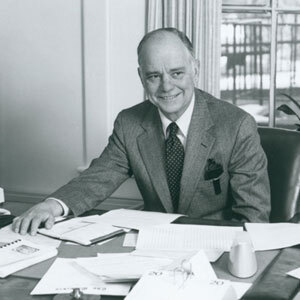
James Norvell Lapsley, Jr. (1930 – 2021)
The Society of Pastoral Theology lost one of its ardent pioneers in the death of James Norvell Lapsley, Jr. on October 28, 2021. Co-founder of SPT along with his friend and colleague, Liston Mills, Lapsley was a fervent supporter of pastoral theology as a bona fide theological discipline. The founding of the Society was one of his proudest accomplishments among many.
Born on March 16, 1930, in Clarksville, Tennessee, Lapsley demonstrated a lifelong commitment to Presbyterianism. He graduated from Southwestern at Memphis (now Rhodes College) in 1952. Lapsley then enrolled in Union Theological Seminary in Richmond, served two years as a pastor and then pursued his doctoral degree in pastoral theology under his mentor, Seward Hiltner.
In 1961, Lapsley followed Hiltner to Princeton Theological Seminary and began his teaching career. Lapsley went on to have an illustrious career, integrating what he understood to be the best of the social sciences with the best of Christian theology. His career is marked by several books (e.g., The Concept of Willing, Salvation and Health, and Renewal in Late Life Through Pastoral Counseling), a place on the editorial board of the Journal of Pastoral Care, and tenure as chair of the editorial board at the discipline’s flagship journal, Pastoral Psychology. He co-founded the Clinical Pastoral Education program at Robert Wood Johnson University Hospital. He helped establish the Journal of Pastoral Theology, a premier journal, of the Society for Pastoral Theology. In addition to his work as a professor, he served as the Seminary’s academic dean from 1984-1989.
“As one of his last doctoral students, I experienced Lapsley as a mentor who listened carefully and deeply to me.” Suzanne Coyle notes. “He had a way of parsing my concerns critically. At the same time, he did not make feel inferior. Instead, he found some quality I had and encouraged me to develop it. I always admired the fact that he was able to show stability and strength as a scholar while living under the mighty weight of his mentor Seward Hiltner at Princeton.”
Lapsley and his wife, Brenda Weakley, raised two children, Joseph and Jacqueline. He retired after 31 years at Princeton. After’s Brenda’s death, he married Helen Winter and enjoyed a full retirement in their home in Arizona. They traveled the world enjoying music and cultural sights. He spent many hours hiking, reading, and writing.
James Lapsley will be remembered for his consistent scholarship, his love of integrating social sciences and theology, his quiet presence, and his availability to all those who needed him. He is missed.
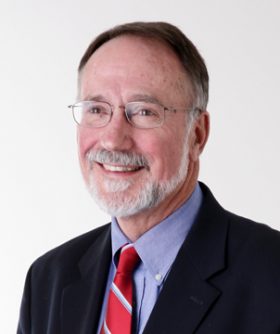
Larry Kent Graham (1942 – 2017)
The Rev. Dr. Larry Kent Graham was a Professor Emeritus of Pastoral Theology and Care at Iliff School of Theology, Dr. Graham was a leader in his field, an inspired teacher who influenced generations of students, a trusted colleague and friend and a tireless worker for social justice. Dr. Graham earned his doctorate from Princeton Theological Seminary in 1978 and was a faculty member at Iliff School of Theology from 1977 to his retirement in 2014. Dr. Graham’s family was the center of his life. He is survived by Dr. Sheila Greeve Davaney, his spouse of 33 years. Dr. Davaney was his colleague at Iliff School of Theology, his thought partner and his dearest friend.
Dr. Graham was a leader in his field of pastoral theology. His publications include three volumes that expanded the horizons of the fields of pastoral theology and care: Moral Injury: Restoring Wounded Souls (Nashville: Abingdon Press, 2017), Discovering Images of God: Narratives of Care with Lesbians and Gays (Louisville: Westminster John Knox Press, 1997) and Care of Persons, Care of Worlds: A Psychosystems Approach to Pastoral Care and Counseling (Nashville: Abingdon, 1992) as well as 43 book chapters and articles. His most recent book and articles on the moral injury, political dimensions of pastoral care, forgiveness for veteran guilt, and the impact of war on families demonstrate the ways he continued to push the field of pastoral theology in new and challenging directions.
His leadership in establishing the Society of Pastoral Theology in 1985 shaped the field of pastoral theology in profound ways. He helped to co-create an academic guild for pastoral theologians and practitioners—a guild that found ways to enact social justice in its governance and practices. The Society created a mentoring community and established the Journal of Pastoral Theology, both of which helped many emergent scholars—notably African American and feminist scholars—publish and gain tenure. He was one of the early co-editors of the journal. When SPT met in Denver in 2006 he organized an immersion experience commemorating the 1999 shootings at Columbine High School in Littleton, Colorado, and he gave the plenary address on “Pastoral Theology and Catastrophic Disaster.” He was truly an amazing mentor who shaped past and future generations of scholars in the field of pastoral theology.

The Rev. Dr. Glenn H. Asquith, Jr. died on April 5, 2017, at home in Macungie, PA. Born in Westerly, RI, he was the son of the late Rev. Dr. Glenn H. Asquith, Sr., and Helen Underdown Asquith. Dr. Asquith was Emeritus Professor of Pastoral Theology and Director of the Master of Arts in Pastoral Counseling program at Moravian Theological Seminary in Bethlehem, PA, where he taught for 31 years, from 1978 to 2009. Following retirement from Moravian, he served as Director of Congregational Care at Asbury United Methodist Church in Allentown, PA from 2009 to 2016 and he was also in private practice as a Pastoral Counselor in Bethlehem, PA from 2009 to 2015.
Prior to coming to Moravian, he was a pastor at First Baptist Church in Birmingham, Michigan, and, during graduate school, served as chaplain at various hospitals, a nursing home, and a juvenile correction facility. While at Moravian, he served part-time as an interim pastor at two local churches, as Minister of Pastoral Counseling at First Baptist Church of Bethlehem, and as Group Support Facilitator for the Dr. Dean Ornish Heart Health Program at Lehigh Valley Hospital. He also led a number of student mission trips and courses of study to Central America and in the Caribbean Islands. Ordained in the American Baptist Church, he was a member of Calvary Baptist Church of Allentown.
He studied at Eastern Baptist College (B.A. in Psychology, 1968), Colgate Rochester/Bexley Hall/Crozer Theological Seminary (M.Div., 1971) and at Southern Baptist Theological Seminary (Th.M.,1972, Ph.D. 1976). Dr. Asquith was a Fellow in the American Association of Pastoral Counselors and was certified by the National Board of Certified Counselors. He also was a member of the Association for Clinical Pastoral Education (ACPE) and the Society for Pastoral Theology. In addition, he was the author or editor of a number of books and articles in the field of pastoral care and counseling. Most recently he authored The Concise Dictionary of Pastoral Care and Counseling. In 2015 he received a prestigious award from The College of Pastoral Supervision and Psychotherapy for significant achievement in the field of clinical care and counseling.
Dr. Asquith is survived by his loving wife, Connie, a retired United Methodist pastor. Together, they enjoyed their family of four adult children, Meredith Twardowski (Tom), Shannon Asquith Stahl (Jack), Jeffery Feltenberger (Holly) Steven Feltenberger (Michelle); two sisters, Nancy Asquith of Dover, TN and Helen Asquith Lawrence of Media, PA, and two nieces, Joan Lawrence and Mary Oyola (Marco). He was also “Grandpa” to 8 grandchildren.
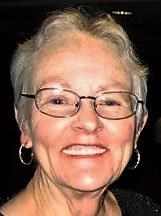
SPT founding member The Rev. Emma J. Justes died on January 31, 2017 at Hospice of Dayton after receiving excellent care. She had been battling pancreatic cancer diagnosed only in July.
Dr. Justes, known to everyone as Emma, was born in Covington, Kentucky in 1941, to parents, Alonso and Hazel Justes. She grew up in Cherry Grove, Ohio and graduated from Anderson High School. She attended Franklin College, in Franklin, Indiana, where she attained a BA in Elementary Education. While at Franklin College she met a professor, Carolyn Burnett who became a life-long friend. The two young women took a summer trip to Europe where they biked and hiked across the continent staying in hostels.. This was the first of many adventurous trips that Emma would take.
Having been called at a young age, Emma attended Colgate Rochester Divinity School, graduating in 1967, with a Masters of Divinity. While in seminary she worked at the United Church of Pittsford for her field education. She was ordained in the American Baptist Church. Her seminary education introduced her to the writing of Howard Thurman. His theological insights and a growing belief in social justice, lead to a life-long commitment to the African American community and church.
She enrolled in Princeton Theological Seminary and earned a second masters in theology while serving as assistant pastor of the Second reformed Church in Somerville, New Jersey. She then enrolled in the PhD program at Princeton in pastoral theology. While pursing her degree she worked as a trainee, then as a staff member, at the Trinity Counseling Center where she provided individual, couples, family and group counseling. Emma also served as a teaching fellow at Princeton Theological Seminary, leading small groups that discussed cases presented by students.
Perkins School of Theology of Theology hired Rev. Justes as Associate Director of the Intern Program and Counselor to Students in 1975. While in Dallis, she finished her dissertation and was granted in 1979 the Doctor of Philosophy in Pastoral Theology from Princeton Theological Seminary.
Dr Justes was hired by Garrett-Evangelical Theological Seminary in 1979 as Associate Professor of Pastoral Psychology and Pastoral Care. This marked her move to the Chicago area. She influenced her field by teaching subjects that others avoided such as Sexuality, Aging and the Pastoral Care of Women. She demonstrated the importance of integrating pastoral care in other fields as she co-taught in Patristics and Homiletics. Determined to connect with professionals in Pastoral Theology, she and colleagues founded the Society for Pastoral Theology. She served on the steering committee and was the second Convener of the professional society.
It was during this time that Emma purchased her home to create a place for family. She began to pursue her next important goal, to become a mother, which was not easy as a single woman. She was not afraid of adopting cross-racially. On Christmas Eve in 1985, Emma brought home her first son, Charles Isaac Kito Justes. Four years later she brought home her second son, James Micah Kamali Justes. Her greatest joy was being their mother.
In 1988, Dr. Justes was hired by Northern Baptist Theological Seminary. She taught at Northern until 2007. In 1996, Dr. Justes made a trip to South Africa to teach at the newly opened Baptist Convention College in Johannesburg. In 1999, Dr Justes joined the ministry team at St. John African Methodist Episcopal Church with a focus on women’s ministry and adult bible study. After leaving Northern Baptist, she joined the United Theological Seminary faculty as the Distinguished Professor of Pastoral Care and Counseling, Emma Toussant Chair in Pastoral Theology
Dr. Emma Justes has numerous publications including her two books, Hearing Beyond the Words: How to Become a Listening Pastor, and Please Don’t Tell: What to do with the Secrets People Share.
Dr. Justes loved her profession teaching aspiring ministry students. She had a unique ability to reach into student’s lives, affirm their gifts and expand their vision of themselves and their ministry. We will all miss her radiant smile, risk taking ministry and encouraging words. Her legacy will be carried out in the ministry and lives of the thousands of students, colleagues and friends whose lives she touched.
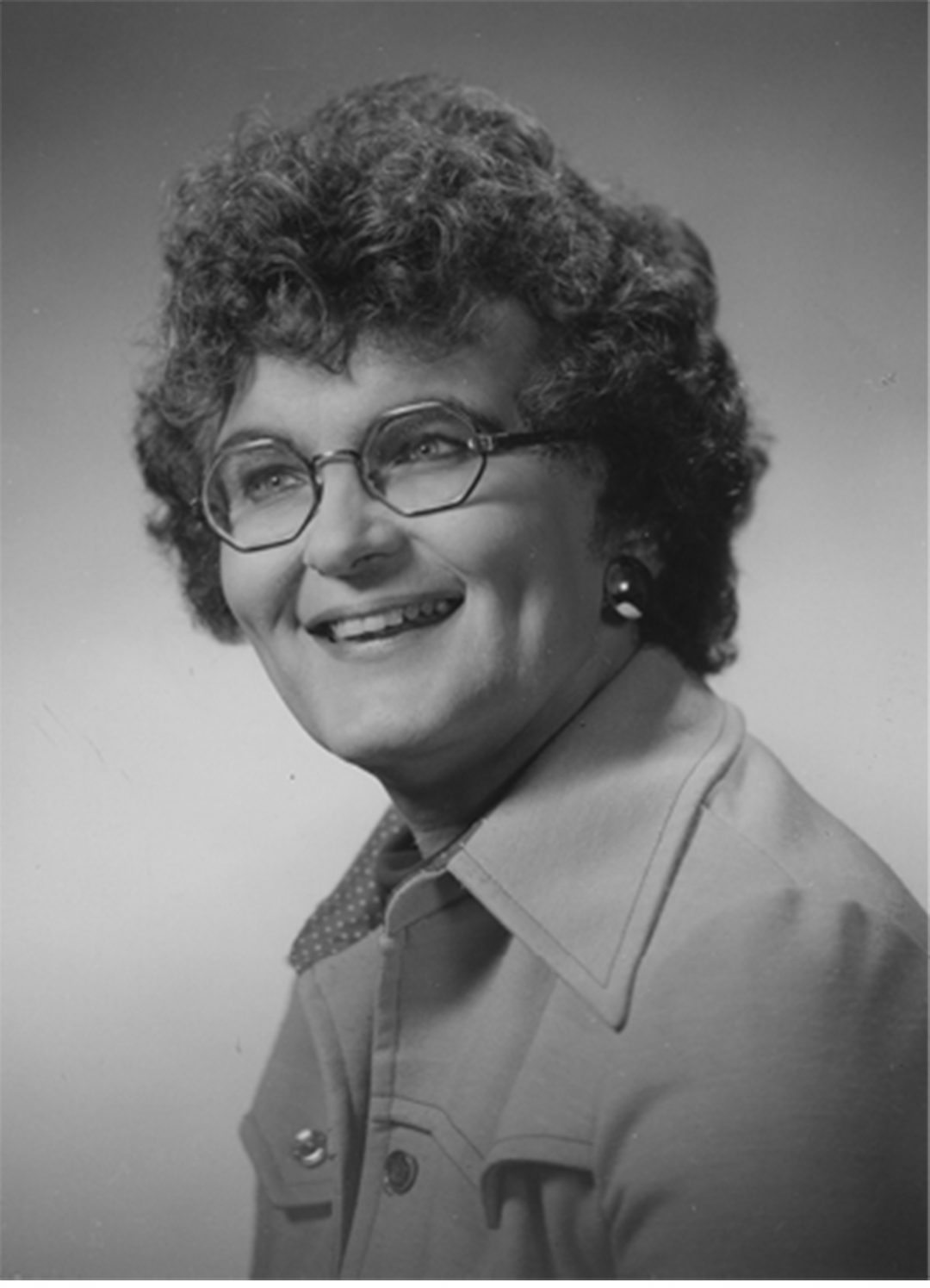
Peggy Ann Brainerd Way, a scholar in pastoral care and the first woman appointed to a full-time position on the Vanderbilt Divinity School faculty, died July 9, 2016 in Nashville after a brief battle with cancer. She was 84.
Way accepted a position in pastoral theology at Vanderbilt Divinity School in 1977 from then-Dean Sallie McFague, whose own appointment at the time was only part-time. Previously, she had taught at the University of Chicago Divinity School, where she too had been the first woman with a full-time faculty appointment.
In addition, she was the first of two women to teach at the Jesuit School of Theology in Chicago. She also was the first woman faculty member in a field other than Christian education at McCormick Theological Seminary.
A Michigan native, Way earned degrees from the University of Michigan, Wayne State University and Chicago Theological Seminary before being ordained in the United Church of Christ in 1960. She and her late husband, the Rev. William F. Way, had met and fallen in love while both were social workers. They went to seminary together and were their denomination’s first clergy couple to be ordained in a joint celebration. They became co-pastors of Craigin Congregational Church in Chicago, where she also was a community organizer and director of some social welfare agencies serving at-risk neighborhoods.
She earned a doctoral degree in divinity from Christian Theological Seminary and Doane College in 1973, and a Ph.D. from Princeton Theological Seminary in 1979.
A sought-after speaker, lecturer and preacher, Way taught at Vanderbilt from 1977 to 1987. She then taught at Eden Theological Seminary in St. Louis, where she was honored with a distinguished chair for excellence in teaching. After retiring from Eden in 2005, Way returned to Nashville as an adjunct professor at Argosy University, serving as program coordinator for the doctoral program in pastoral community counseling.
“Peggy Way linked two eras in American theological education,” says Volney Gay, professor of religious studies, psychiatry and anthropology at Vanderbilt and a colleague during Way’s time at Vanderbilt. “She was trained in a period of traditional hierarchies, when men dominated all aspects of training. She came of age as an advocate for welcoming women into every aspect of education and leadership. She matured into a leading voice of expanded equity and spiritual depth for her church, her school and her community.”
Way is survived by her daughter, Rebecca Ann Way, BS’82, MEd’86; her son, Steven William Way, BA’84; four grandchildren and two great-grandchildren.
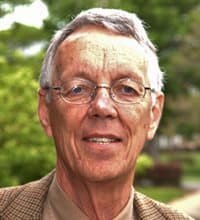
Donald Capps, beloved former professor at Princeton Theological Seminary, died on August 26, 2015, at the age of 76.
“Don Capps represented the very best in our profession,” remarked Dr. Craig Barnes, president of Princeton Seminary. “He was an accomplished scholar whose works shaped the field of pastoral theology. He was a beloved teacher who taught generations of future pastors to care not only for others but for themselves. He made a lasting impact on the church and our campus community, and we will miss him dearly.”
Dr. Robert Dykstra, professor of pastoral theology at Princeton Seminary, spoke about Professor Capps’ extraordinary kindness. “He always erred on the side of unfailing kindness on behalf of the individual,” Dr. Dykstra said. “Don would shower attention on individual students and others who found themselves somehow off the beaten path, whose ideas about and experiences of God were spoken only hesitantly. It’s fair to say that Princeton Seminary, the discipline of pastoral theology, and the lives of many who have found themselves on the far edges of a Christian community in which they don’t quite fit, but cannot quit, will not see the judicious likes of Don Capps again.”
Professor Capps earned his BD and STM from Yale Divinity School and his MA and PhD from the Divinity School of the University of Chicago.
He joined the faculty of Princeton Theological Seminary in 1981 as the William Harte Felmeth Professor of Pastoral Theology. Professor Capps drew on his training as a psychologist of religion in both his teaching and his writing. His research interests included pastoral care, psychobiography, and the psychology of religion, art, and poetry. His courses covered pastoral counseling, poetry and the care of souls, pastoral care of the life cycle, and people with chronic psychological disorders.
Upon his retirement in 2009, the Seminary’s Board of Trustees elected Professor Capps to emeritus status.
He was awarded an honorary STD degree in 1989 by Uppsala University in Sweden for his contributions to the psychology of religion. From 1990-1992, he served as President of the Society for the Scientific Study of Religion.
A prolific writer and beloved teacher, Professor Capps authored or co-authored over 30 books and over one hundred chapters, articles, and reviews. His publications include Men and Their Religion: Honor, Hope, and Humor (2002), A Time to Laugh: the Religion of Humor (2005), and The Decades of Life: A Guide to Human Development (2008).
He was an ordained minister in the Evangelical Lutheran Church in America.
Professor Capps is survived by his wife, Karen, and a son, John Michael Capps.
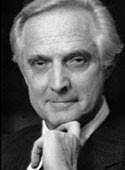
Don Browning, a professor in the Divinity School and a leading scholar on marriage in America, died June 3, 2010 at his home in Hyde Park. He was 76.
Don Browning, the Alexander Campbell Professor Emeritus of Ethics and the Social Sciences in the Divinity School, studied the influence of religion on American family life, as well as the intersection of psychology and religion. For more than a decade, he was the director of the Divinity School’s Religion, Culture and the Family Project.
“Don Browning was a stalwart and utterly collegial citizen of Swift Hall and the wider University,” said Richard Rosengarten, dean of the Divinity School. “We miss him and we mourn his passing, even as we recall his myriad accomplishments.”
Browning was born Jan. 13, 1934 in Trenton, Mo. He received his BD (1959), AM (1962) and PhD (1964) from the Divinity School. He was an ordained minister of the Christian Church (Disciples of Christ). From 1977 to 1983, he was dean of the University of Chicago Disciples Divinity House.
Browning’s early work focused on the integration of psychology and pastoral care. His second book, Generative Man: Psychoanalytic Perspectives, was a finalist for the National Book Award in 1974.
He was instrumental in the advancement of the practical theology movement, which emphasizes the integration of religious theory and religious practice. His 1991 book, A Fundamental Practical Theology, is widely considered a classic in the field.
In 1990, Browning received a grant from the Lilly Endowment to start the Religion, Culture and the Family Project. Over the course of the project, Browning examined the social implications of the decline of marriage. The research resulted in numerous books and scholarly articles, as well as a nationally televised, two–hour documentary, “Marriage: Just a Piece of Paper?”
“He had an amazingly capacious mind that could see how religious and moral questions need to be explored from a variety of vantage points,” said William Schweiker, the Edward L. Ryerson Distinguished Service Professor in the Divinity School and the College. “He could pinpoint the strength and weakness of an argument and indicate this in a forceful, but gentle way.”
“It’s going to be impossible to find someone else to do what he did,” said Jean Bethke Elshtain, the Laura Spelman Rockefeller Professor of Social and Political Ethics in the Divinity School. “He represented something unique. He had an unusual combination of expertise. As a scholar of the family, he believed you had to look at history, you had to look at sociological context, you had to look at law.”
As a colleague, “he was absolutely wonderful. He was thoughtful, engaged and attentive,” Elshtain said. “If you wanted to construct an ideal colleague, he would be my image.”
Browning, a longtime Hyde Park resident, was an avid moviegoer who loved spending time with his grandchildren and searching out local ethnic restaurants, said his son Chris.
In addition to his son, Browning is survived by his wife, Carol; his daughter, Elizabeth; and his granddaughters, Kristin and Lydia.
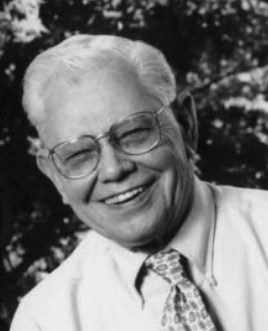
Liston O. Mills, the Oberlin Alumni Professor of Pastoral Theology and Counseling, emeritus, died April 30, at his residence in Nashville. Professor Mills joined the Divinity School faculty in 1962 and retired in 1998 after 36 years of continuous service to the University. He was editor of Perspectives on Death, associate editor of the Dictionary of Pastoral Care and Counseling, editor of the Pastoral Psychology Journal (1974-82), and author of chapters in several books and articles in scholarly journals. He served on the editorial boards of the St. Luke’s Journal of Theology (1975-90) and the Journal of Judaism and Psychology (1976-1997).
For his many contributions to his discipline, in 1994 he was presented the J. Obert Kempson Award for Distinguished Service by the Southeast Region Association for Clinical Pastoral Education, given the Distinguished Contribution Award for 2000 by the Society for Pastoral Theology, of which he was a co-founder, and in 2001 was presented the Distinguished Contribution Award by the American Association of Pastoral Counselors.
His contributions to Vanderbilt were many and varied. He served as chair of the Faculty Senate (1973), chair of the Committee on Purpose and Scope of the University (1974-75), was a member of the University Reassessment Panel (1979-80) and the Committee on Teaching Excellence. In 1989 he was named acting dean of the Divinity School. He was a major contributor in establishing the Ph.D. Program in Religion and Personality and chaired that program for many years. These and other contributions to the University earned him the title Alexander Heard Distinguished Service Professor for 1991-92.
These notes of accomplishment, while significant, do not really communicate that which made him important to his students, colleagues and many friends outside the academy. He had many of those qualities that one finds in persons we greatly admire — integrity, compassion, wisdom, balance in perspective and great courage in the face of adversity. He taught many of us how life should be lived. We are the richer for it.
He is survived by his wife, Jennie Ellen Windsor Mills, and daughter, Sarah Elizabeth Mills. He was buried in Nashville.